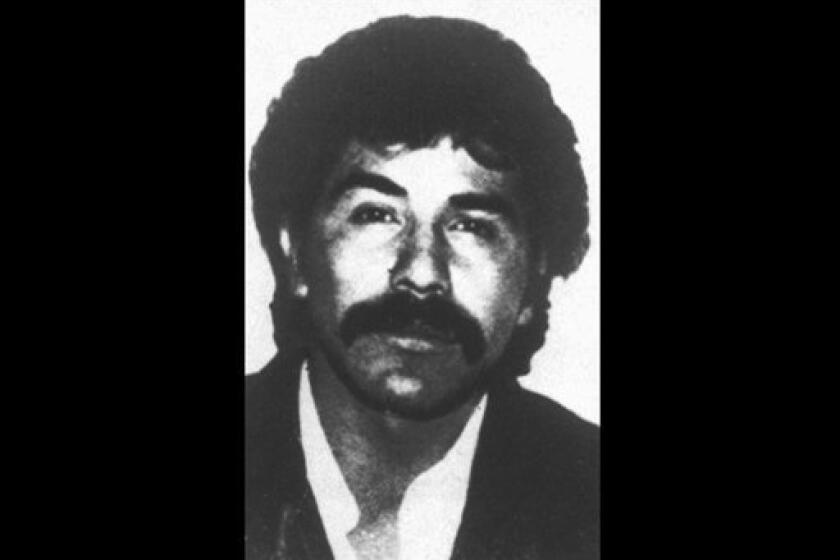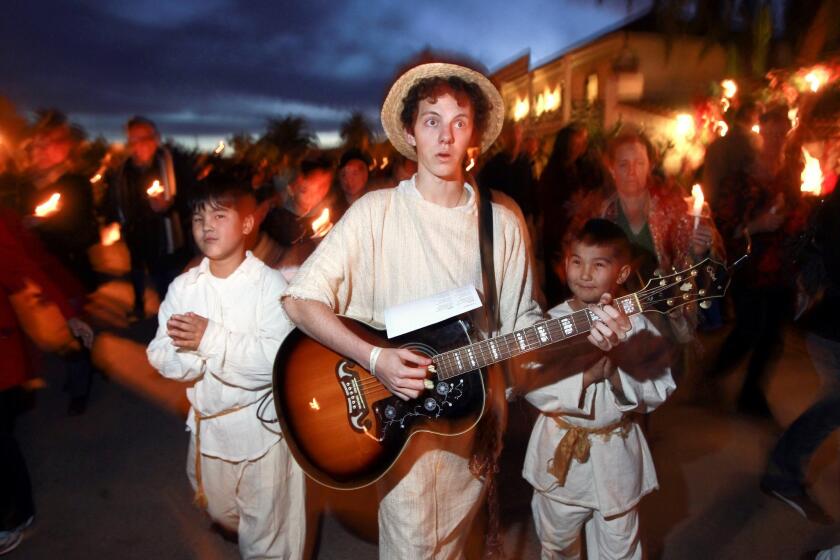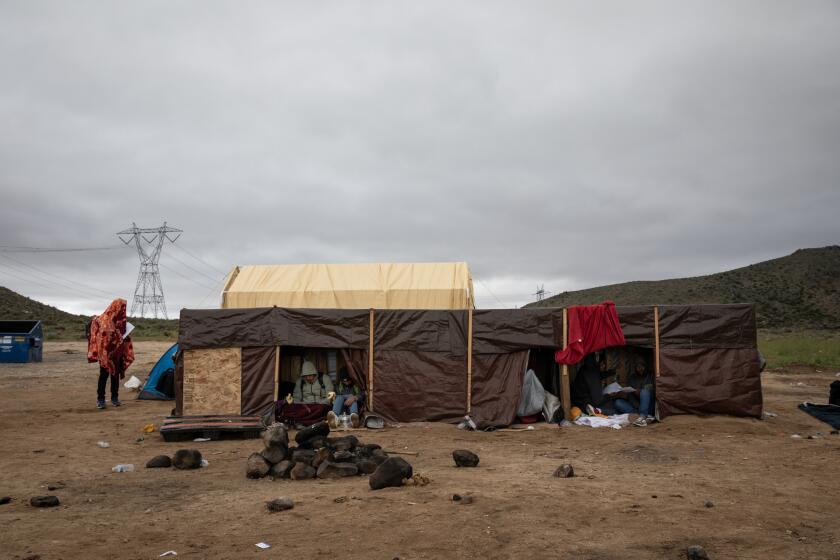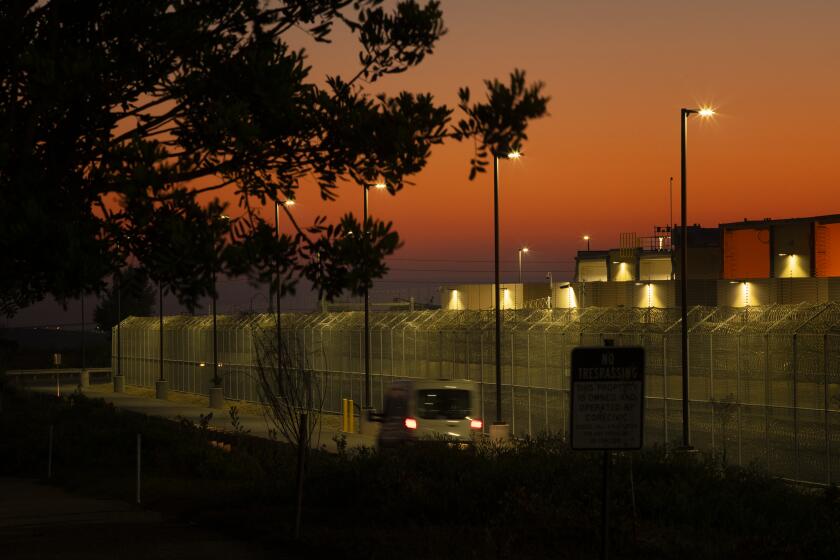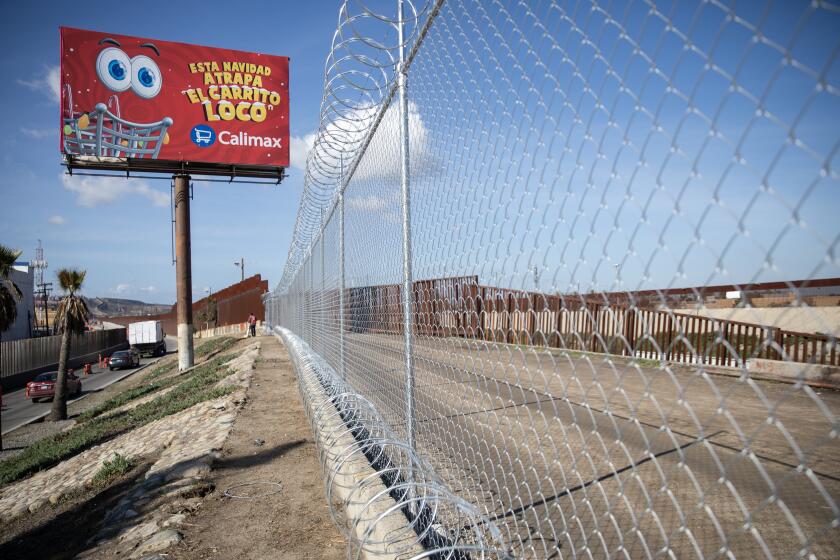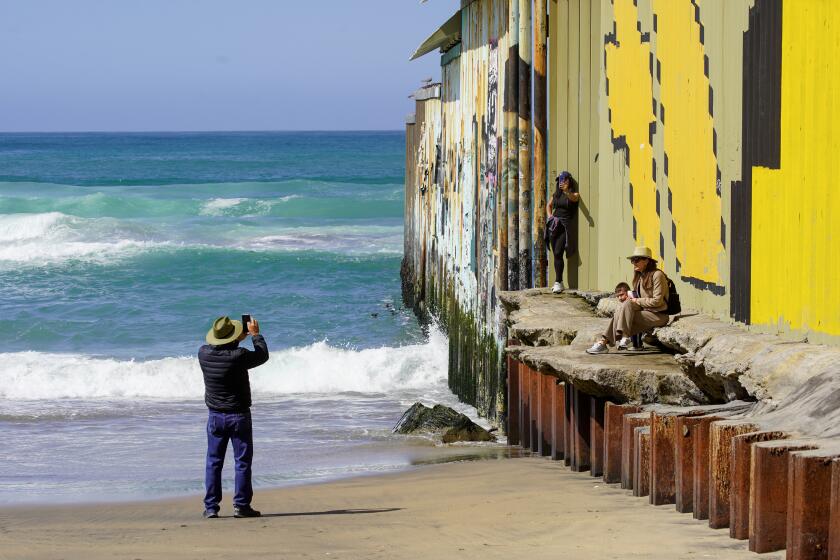Border Patrol keeps lethal force
U.S. Customs and Border Protection will not change its use-of-force policy against rock throwers, which allows agents to resort to lethal weapons, the agency’s leader has announced. The decision comes after an outside reviewer recommended otherwise.
Border Patrol Chief Mike Fisher told The Associated Press that such a revision would make the policy very restrictive. The Police Executive Research Forum, which conducted an audit at the agency’s request, had concluded that agents should stop using lethal force.
The review came in response to criticism from civil-rights advocates and some leaders in border communities of the agency’s use-of-force standards after more than 20 people died during the past three years in incidents involving Border Patrol agents. Eight of those cases included rock throwing.
Customs and Border Protection has not released the forum’s full report.
“We shouldn’t have carve-outs in our policy and say, ‘except for this, except for that,’” Fisher told The Associated Press in a story published Tuesday. “Just to say that you shouldn’t shoot at rock throwers or vehicles for us, in our environment, was very problematic and could potentially put Border Patrol agents in danger.”
The agency’s policy also addresses situations such as assailants driving in a vehicle.
On Tuesday night, Customs and Border Protection issued a statement to U-T San Diego.
“Although CBP agrees with the underlying premise and intent of all of (the forum’s) recommendations ... in two limited cases it did not accept the specific language in the (forum’s) recommendations in their entirety” because it would undermine Border Patrol operations, the statement said. “CBP is continuing to develop training and exploring additional equipment and tactics to ensure our agents are well prepared to address dangerous situations.”
In the spring, the agency came under fire after 16 members of Congress sent a letter asking the Department of Homeland Security to scrutinize its use-of-force protocols. The request was spurred by the 2010 death of unauthorized immigrant Anastasio Hernandez Rojas. A longtime resident of Santee, Hernandez Rojas had been deported and was trying to return to his family when he was apprehended by the Border Patrol. During his second deportation, he died after being beaten and tased by his handlers at the San Ysidro port of entry.
Cellphone video from a bystander shows the hog-tied Hernandez Rojas crying for help while being surrounded by more than a dozen law-enforcement officers who used their batons, kicked and eventually tased him. After the tasing, he was slammed against a wall before being taken to a hospital.
Officials said he was fighting the agents and officers.
The Department of Justice launched an investigation after sustained outcry from groups across the country, and the status of that probe has not been disclosed. In addition, Hernandez Rojas’ family has filed a wrongful death lawsuit against Customs and Border Protection, groups of his supporters have traveled several times to Washington, D.C., to lobby lawmakers and PBS has aired a documentary about the case.
In September, Customs and Border Protection said it would take steps to address complaints about its use-of-force standards and adopt some of the Police Executive Research Forum’s recommendations. The agency said at the time that it would improve its analysis of use-of-force incidents, identify less-lethal methods for use during confrontations, improve training and increase collaboration with organizations working on border issues.
Also in September, the Department of Homeland Security released a study noting that how Customs and Border Protection does not track or log allegations of excessive force from the public. It likewise said many of the agency’s employees were unaware of the use-of-force benchmarks. That report said about two-thirds of the small sampling of workers surveyed suggested “possible allegations of excessive use of force” in 1,187 cases between 2007 and 2012.
Shawn Moran of Solana Beach, spokesman for the National Border Patrol Council, said accusations about excessive force do not tell the whole story. On Tuesday, he expressed appreciation for Fisher’s comments, saying it was supportive of rank-and-file agents.
“He earned a lot of respect today,” Moran said. “He does not view agents as trigger-happy. We reluctantly use force only when necessary.”
Moran also said a blanket policy banning agents from using deadly force could increase their risk when facing rock throwers, large groups or other situations when they are alone. He worried that rock throwing would surge if agents could not respond with lethal weapons.
Moran said the Police Executive Research Forum is versed in city policing but does not understand the challenges of Border Patrol work.
Often, he said, agents work by themselves and must hike away from their vehicles so they can apprehend border-crossers or drug smugglers.
“If they encounter someone with rocks or someone who is running them down, they have little time to respond,” Moran said. “Sometimes the only weapon that is going to work is a pistol or rifle.”
Response from civil-rights advocates — including the American Civil Liberties Union, which has worked on the rock-throwing issue — was swift. They denounced Fisher’s comments and likened his stance to an open season on unauthorized immigrants along the border. Shooting someone for rock throwing is disproportionate to the crime, the ACLU has long argued.
In addition, Fisher’s remarks contradict what his agency said in September about incorporating less lethal methods and analyzing use-of-force incidents, said Anna Castro, spokeswoman for the ACLU in San Diego. “This recent statement is very disappointing,” she said. “These recommendations were not just coming from us, they were coming from this third-party organization that wanted to make sure that CBP aligned with local law-enforcement agencies.”
Castro said the ACLU plans to continue working on the issue with the agency.
San Diego “is a border town, and we believe civil rights have to defended at the border,” she said.
Get Essential San Diego, weekday mornings
Get top headlines from the Union-Tribune in your inbox weekday mornings, including top news, local, sports, business, entertainment and opinion.
You may occasionally receive promotional content from the San Diego Union-Tribune.
